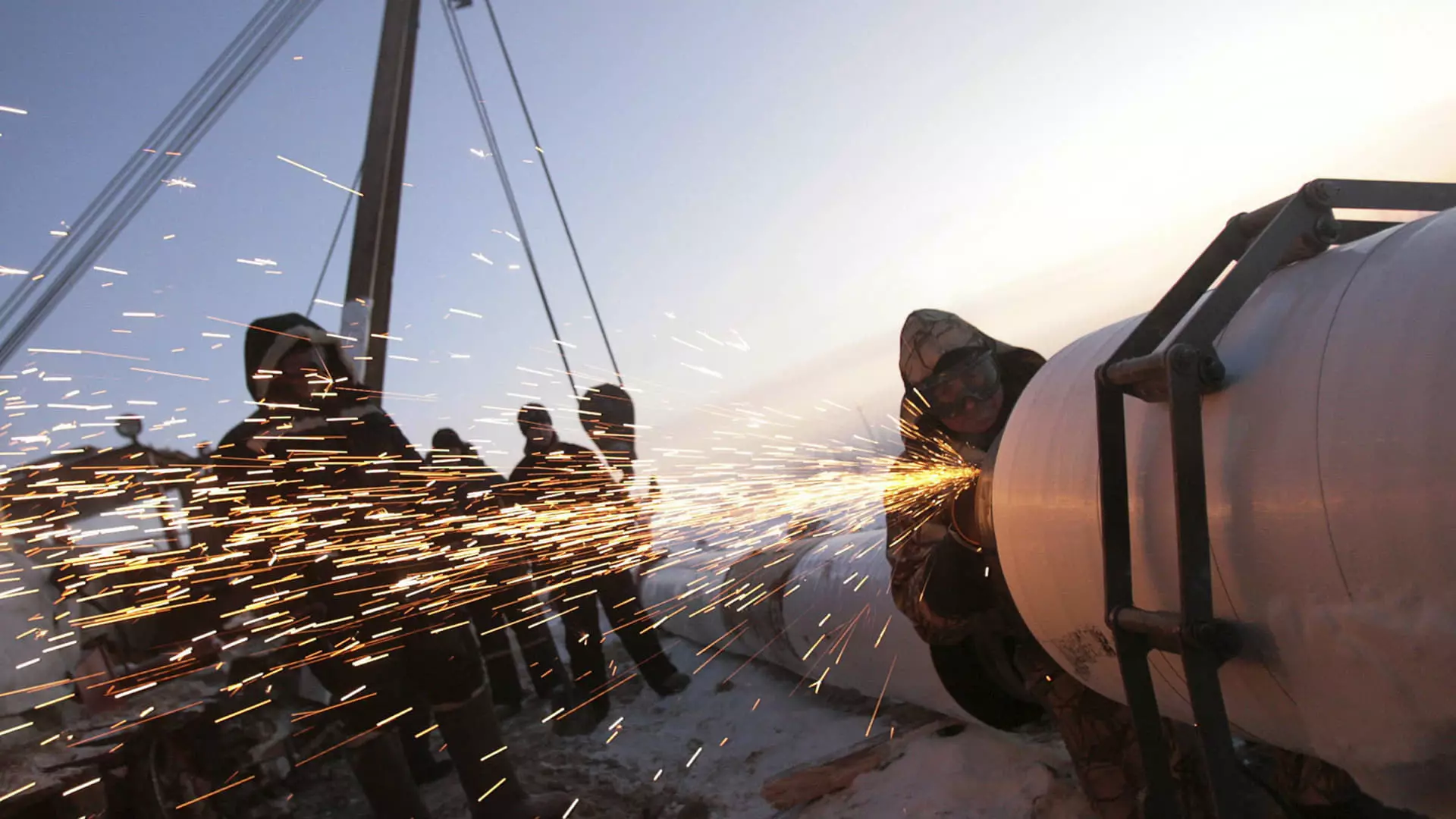The energy dynamics in Europe is undergoing a seismic shift, particularly in the context of Russian gas supplies. Following the Ukraine conflict and subsequent geopolitical tensions, Europe’s reliance on Russian natural gas has been increasingly scrutinized and diminished. The recent developments regarding Gazprom, the Russian gas company, illustrate the complexities of energy dependencies and illustrate how historical ties are now facing unprecedented challenges.
In a significant move that sent ripples through the energy market, Gazprom announced the cessation of gas supplies to Austrian energy company OMV. This halt came soon after Austria declared that it had received notification from Russia regarding impending reductions in gas flows. The timely announcement aligns with Austria’s bid to navigate an unexpected arbitration ruling whereby Gazprom was liable for unfulfilled gas contracts with its German subsidiary. Hence, OMV sought to leverage this arbitration award as a rationale to offset financial claims against Gazprom, inserting deeper complexities into the transactional relationships that have long characterized European energy markets.
Implications of the Conflict and Past Relationships
Historically, Russia has been a cornerstone energy supplier to Europe, particularly before the onset of the Ukraine war. This reliance has been buttressed by decades of infrastructure investment, establishing robust pipeline networks from Siberia. However, recent geopolitical events have systematically dismantled this framework. The destruction of the Nord Stream pipeline in 2022 exemplifies the frail nature of this energy relationship, underscoring how military conflict has repercussions that extend well beyond the battlefield.
In the context of the Urengoy-Pomary-Uzhgorod pipeline—one of the last main arteries for Russian gas flowing into Europe—the unrenewed five-year transit agreement by Ukraine poses even more challenges. As gas supplies dwindle, critical supply routes must be reassessed, particularly as Kyiv aims to curtail Russian influence over its energy infrastructure.
As Gazprom aims to maintain its revenue streams, it remains constrained. Reports indicate Gazprom has been supplying stable volumes—approximately 42.4 million cubic meters of gas to Europe via Ukraine—yet this is contrasted sharply against a backdrop of diminished market share. In the pre-conflict landscape, Russian gas accounted for 35% of Europe’s energy supply. However, data reveals a stark decline, with Gazprom’s overall influence significantly eroded as alternative suppliers, such as Norway and the United States, have stepped in to fill the void left by Russian exports.
E-Control, Austria’s energy regulator, reported that while markets remained stable in terms of pricing, the overall transmission from Ukraine was lagging, with deliveries to Austria notably decreased by 16% compared to earlier benchmarks. Such fluctuations not only reflect the immediate economic repercussions but also highlight broader fears surrounding energy security as European countries scramble to firmly establish alternative energy sources.
The Future of Energy Relationships in Europe
The conversations between European leaders and Russian authorities, such as Chancellor Olaf Scholz’s recent engagement with President Vladimir Putin, illustrate the difficult diplomatic terrain concerning energy deals. The Kremlin maintains that Russia has consistently honored its contractual obligations, yet trust has eroded. The repercussions of these discussions may determine the future of energy relationships, particularly as Europe grapples with re-envisioning its energy policies independent of Russian influence.
It is crucial to point out that without Austria’s involvement, Gazprom is expected to have reduced engagement, primarily servicing Hungary and Slovakia, which may not suffice to rebalance the diminished supply routes. Although Hungary continues to receive Russian gas through Turkey, the longer-term implications of these transitions remain uncertain. A new landscape is dawning, where European countries are compelled to look beyond traditional energy partnerships.
The implications of the current energy crisis are cascading, leading to a reformation of economic and political alliances. Gazprom’s challenges reflect a pivotal moment where energy security, geopolitical integrity, and economic viability intertwine. With Russia’s share of European gas supplies considerably winnowed down, the future belongs to a continent seeking energy independence and resilience against coercive tactics. The shift from reliance on Russian gas is not merely a matter of changing suppliers; it involves a profound transformation of how nations interact in the realm of energy and supplies going forward. Understanding and navigating this new era will require European nations to remain agile and innovative in their pursuit of sustainable and secure energy futures.

Leave a Reply